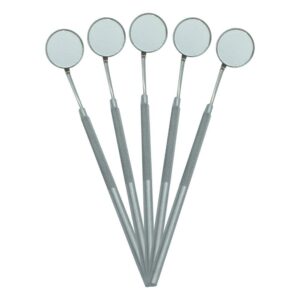Simple tips to switch from mouth breathing to nasal breathing
Simple tips to switch from mouth breathing to nasal breathing
Are you aware that the way you breathe can have a significant impact on your health and wellbeing? Breathing is a natural process, but how you do it can determine how well you feel. Nasal breathing is the ideal way of breathing, but many people unconsciously breathe through their mouth, especially during sleep. Mouth breathing can lead to several health issues such as sleep apnea, snoring, dry mouth, and bad breath. If you’re looking for simple tips to switch from mouth breathing to nasal breathing, keep reading.
- Practice Breathing Exercises
Breathing exercises can help you develop healthy breathing habits. To switch from mouth breathing to nasal breathing, try doing the following exercise:
• Sit comfortably and close your mouth. • Breathe in through your nose, and exhale through your mouth. • Pinch your nose gently with your fingers, and hold your breath for a few seconds. • Release your nose, and breathe in through it.
Repeat this exercise for a few minutes every day, and you’ll notice an improvement in your breathing.
- Clear Your Sinuses
If your sinuses are blocked, you may find it challenging to breathe through your nose. To clear your sinuses, try the following:
• Use a saline spray or rinse to irrigate your sinuses. • Inhale steam from hot water infused with essential oils such as peppermint or eucalyptus. • Use a neti pot to flush out the mucus in your sinuses.
Clearing your sinuses will help you breathe better through your nose and promote healthy breathing habits.
- Practice Good Oral Hygiene
Poor oral hygiene can contribute to mouth breathing. If you’re struggling with mouth breathing, try the following:
• Brush your teeth twice a day and floss regularly. • Use a mouthwash to kill bacteria in your mouth. • Visit your dentist regularly for checkups and cleanings.
Good oral hygiene will not only help with mouth breathing but also promote overall health.
- Sleep on Your Side
Sleeping on your back can cause your tongue to fall back and obstruct your airway, leading to mouth breathing. To avoid this, try sleeping on your side. You can use a body pillow to keep you in a comfortable position throughout the night.
- Use Nasal Strips
Nasal strips are an easy and effective way to open up your nasal passages, making it easier to breathe through your nose. These strips work by sticking to the outside of your nose and lifting the sides of your nostrils, making it easier to inhale.
In Conclusion
Switching from mouth breathing to nasal breathing is an essential step towards improving your health and wellbeing. Incorporate the tips above into your daily routine, and you’ll be well on your way to healthy breathing habits. By breathing through your nose, you’ll sleep better, have more energy, and improve your overall quality of life. Start making the switch today!
- Exercise Regularly
Regular exercise can help improve your breathing habits by increasing your lung capacity. Aerobic exercises such as running, cycling, and swimming can help you breathe better and increase your overall fitness. Aim for at least 30 minutes of exercise daily to improve your breathing and overall health.
- Stay Hydrated
Drinking plenty of water can help reduce nasal congestion and promote healthy breathing habits. Dehydration can cause dryness in your nose and mouth, making it difficult to breathe through your nose. Aim for at least eight glasses of water a day to stay hydrated and improve your breathing.
- Manage Your Stress Levels
Stress and anxiety can contribute to shallow breathing and mouth breathing. To manage your stress levels, try the following:
• Practice relaxation techniques such as deep breathing, meditation, and yoga. • Get plenty of restful sleep to reduce stress levels. • Seek professional help if you’re struggling with chronic stress or anxiety.
By managing your stress levels, you can improve your breathing and overall health.
In conclusion, switching from mouth breathing to nasal breathing is an essential step towards improving your health and wellbeing. Incorporating these simple tips into your daily routine can help you develop healthy breathing habits, promote better sleep, increase your energy levels, and improve your overall quality of life. Remember to practice breathing exercises, clear your sinuses, practice good oral hygiene, sleep on your side, use nasal strips, exercise regularly, stay hydrated, and manage your stress levels. With time and practice, you’ll be able to switch from mouth breathing to nasal breathing for better health and wellbeing.
- Use Essential Oils
Essential oils such as lavender and eucalyptus can help improve your breathing and promote healthy breathing habits. These oils have natural properties that can open up your airways, reduce congestion, and promote relaxation. You can use essential oils in the following ways:
• Diffuse them in your room before sleeping. • Add a few drops to hot water and inhale the steam. • Rub a drop or two on your chest before sleeping.
Using essential oils can help you switch from mouth breathing to nasal breathing and improve your overall health.
- Avoid Smoking and Secondhand Smoke
Smoking and secondhand smoke can irritate your airways and make it difficult to breathe through your nose. If you’re a smoker, consider quitting, and avoid exposure to secondhand smoke. Quitting smoking can improve your breathing and reduce your risk of several health issues such as lung cancer, heart disease, and respiratory infections.
- Consult a Healthcare Professional
If you’re struggling to switch from mouth breathing to nasal breathing, consider consulting a healthcare professional. A doctor or respiratory therapist can help diagnose any underlying health issues that may be contributing to your breathing problems. They can also recommend specific treatments or therapies that can help you develop healthy breathing habits.
In conclusion, switching from mouth breathing to nasal breathing is essential for improving your health and wellbeing. By incorporating these simple tips into your daily routine, you can develop healthy breathing habits, promote better sleep, increase your energy levels, and improve your overall quality of life. Remember to practice breathing exercises, clear your sinuses, practice good oral hygiene, sleep on your side, use nasal strips, exercise regularly, stay hydrated, manage your stress levels, use essential oils, avoid smoking and secondhand smoke, and consult a healthcare professional if necessary. With time and practice, you can make the switch to nasal breathing and enjoy the many benefits it offers.
FAQ
Q: Why is it important to switch from mouth breathing to nasal breathing?
A: Nasal breathing is the natural way for humans to breathe, and it has many benefits for our health and wellbeing. Nasal breathing helps filter and humidify the air we breathe, which reduces the risk of respiratory infections and other health issues. Nasal breathing also helps promote better sleep, increase energy levels, and improve overall quality of life.
Q: Can mouth breathing cause health problems?
A: Yes, mouth breathing can cause several health problems, including:
• Dry mouth and throat • Bad breath • Gum disease • Tooth decay • Poor sleep quality • Snoring • Sleep apnea • Respiratory infections
Q: How can I train myself to breathe through my nose?
A: There are several things you can do to train yourself to breathe through your nose, including:
• Practicing breathing exercises • Clearing your sinuses • Practicing good oral hygiene • Sleeping on your side • Using nasal strips • Exercising regularly • Staying hydrated • Managing your stress levels • Using essential oils • Avoiding smoking and secondhand smoke • Consulting a healthcare professional
Q: Are there any specific breathing exercises I can do to switch from mouth breathing to nasal breathing?
A: Yes, there are several breathing exercises you can do to switch from mouth breathing to nasal breathing, including:
• Deep breathing • Diaphragmatic breathing • Alternate nostril breathing • Breath holds • Humming • Buteyko breathing
Q: Can switching from mouth breathing to nasal breathing improve my sleep quality?
A: Yes, switching from mouth breathing to nasal breathing can help improve your sleep quality. Nasal breathing helps filter and humidify the air you breathe, which can reduce snoring and sleep apnea. Nasal breathing can also help promote relaxation and improve overall sleep quality.
Q: Can switching from mouth breathing to nasal breathing help with anxiety?
A: Yes, switching from mouth breathing to nasal breathing can help with anxiety. Nasal breathing helps activate the parasympathetic nervous system, which is responsible for promoting relaxation and reducing anxiety. In contrast, mouth breathing can activate the sympathetic nervous system, which is responsible for the “fight or flight” response and can increase feelings of anxiety.
Q: Is it possible to switch from mouth breathing to nasal breathing if I have a deviated septum or other nasal issues?
A: Yes, it is possible to switch from mouth breathing to nasal breathing even if you have a deviated septum or other nasal issues. In some cases, these issues may require medical treatment, such as surgery or medication. However, there are still many things you can do to promote healthy nasal breathing, such as using nasal strips, practicing good oral hygiene, and using essential oils.
Q: How long does it take to switch from mouth breathing to nasal breathing?
A: The amount of time it takes to switch from mouth breathing to nasal breathing varies depending on the individual and the severity of the issue. With consistent practice and the help of a healthcare professional, many people can make the switch in a matter of weeks or months. However, it may take longer for some individuals.
Q: Are there any risks associated with switching from mouth breathing to nasal breathing?
A: In general, there are no significant risks associated with switching from mouth breathing to nasal breathing. However, if you have any underlying health issues or are experiencing any discomfort or difficulty breathing, you should consult a healthcare professional. They can help diagnose any underlying issues and recommend specific treatments or therapies to help you make the switch to healthy nasal breathing.
Q: Can children benefit from switching from mouth breathing to nasal breathing?
A: Yes, children can benefit from switching from mouth breathing to nasal breathing. Nasal breathing is the natural way for humans to breathe, and it can help promote healthy development and reduce the risk of respiratory infections and other health issues. Encouraging children to breathe through their noses can also help improve their sleep quality, increase their energy levels, and improve their overall quality of life.





